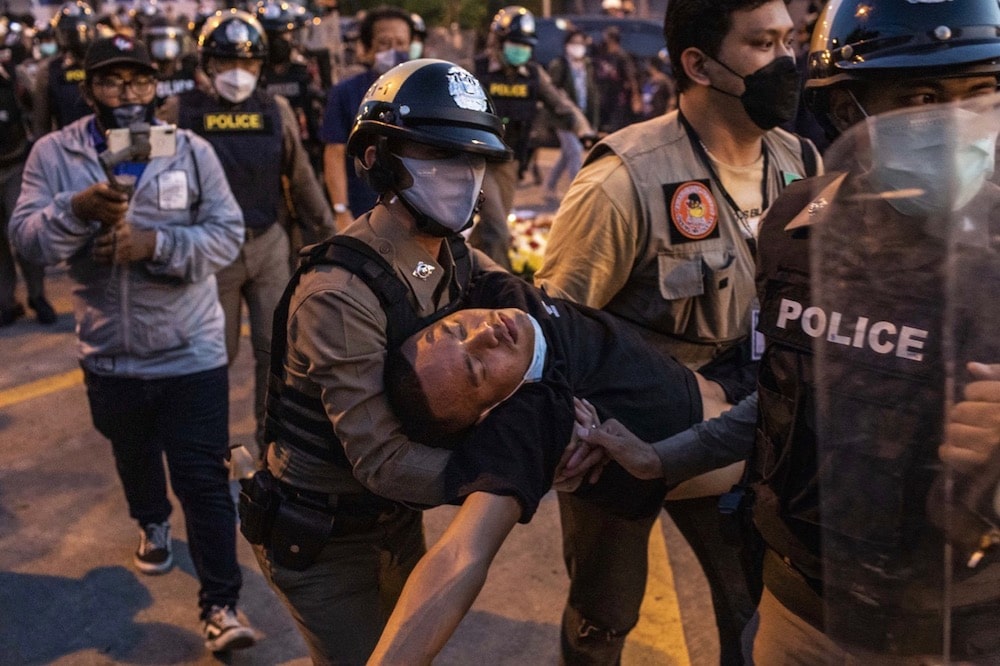ARTICLE 19's new report, 'Thailand: Denying the demand for democracy' finds that authorities have used the country’s Public Assembly Act and Covid-19 state of emergency regulations as pretexts to restrict and repress pro-democracy protests.
This statement was originally published on article19.org on 15 December 2022.
The Thai government’s treatment of pro-democracy protesters has been discriminatory and violated their rights to freedom of expression and peaceful assembly, ARTICLE 19 said in a report released today. Thai authorities exploited the COVID-19 pandemic to enact repressive emergency measures and aggressively and expansively deployed Section 112 of the Criminal Code against protesters. Hundreds of protesters remain in legal proceedings.
“The Thai government’s response to pro-democracy protests continues to silence public discourse as protesters remain in drawn-out legal proceedings that never should have been brought in the first place,” said David Diaz-Jogeix, ARTICLE 19’s Senior Director of Programmes. “The public must be guaranteed the right to peaceful assembly without threat of harassment, legal prosecution, or the use of force.”
ARTICLE 19’s new report, Thailand: Denying the demand for democracy is one of a series of research reports from its #FreeToProtest global campaign, which seeks to protect and advance people’s right to protest, in line with ARTICLE 19’s Principles on the protection of human rights in protests. This report examines how, since the beginning of 2020, youth-led pro-democracy protests have sprung up across Thailand – only to be met with varying degrees of control and suppression on the part of the Thai authorities, including discriminatory practices. Protesters’ demands have variously included democratic and constitutional reform, abolition of the lèse-majesté law, and wholesale reform of the monarchy.
The report finds that the Thai authorities have used the country’s Public Assembly Act and Covid-19 state of emergency regulations as pretexts to restrict and repress pro-democracy protests. Thai authorities appeared to crack down particularly harshly on critics of the monarchy, and protesters at the Din Daeng intersection in Bangkok, who tended to be from lower-income backgrounds. Pro-democracy protesters have faced crackdowns, violence, and arrests. Protest leaders have been repeatedly charged with offences, denied bail, put under pre-trial detention, and have faced extralegal and extrajudicial harassment, including unofficial surveillance. Protests on other issues and royalist mobilisation in support of the monarchy have been treated more leniently.
“Thailand cannot protect the status quo by restricting civic space,” said Diaz-Jogeix. “Authorities that stand behind the excessive use of repressive legislation continue to elude accountability by placing themselves beyond criticism.”



